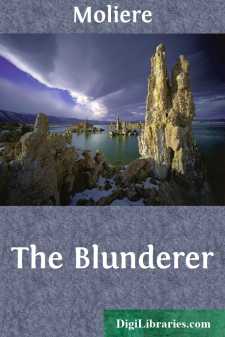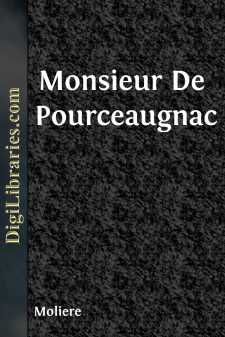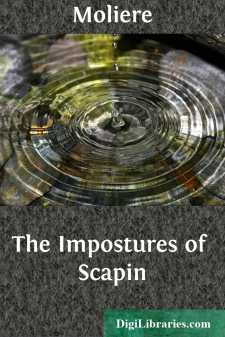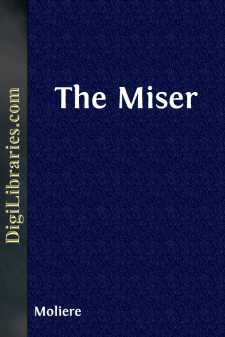Categories
- Antiques & Collectibles 13
- Architecture 36
- Art 48
- Bibles 22
- Biography & Autobiography 813
- Body, Mind & Spirit 142
- Business & Economics 28
- Children's Books 17
- Children's Fiction 14
- Computers 4
- Cooking 94
- Crafts & Hobbies 4
- Drama 346
- Education 46
- Family & Relationships 57
- Fiction 11829
- Games 19
- Gardening 17
- Health & Fitness 34
- History 1377
- House & Home 1
- Humor 147
- Juvenile Fiction 1873
- Juvenile Nonfiction 202
- Language Arts & Disciplines 88
- Law 16
- Literary Collections 686
- Literary Criticism 179
- Mathematics 13
- Medical 41
- Music 40
- Nature 179
- Non-Classifiable 1768
- Performing Arts 7
- Periodicals 1453
- Philosophy 64
- Photography 2
- Poetry 896
- Political Science 203
- Psychology 42
- Reference 154
- Religion 513
- Science 126
- Self-Help 84
- Social Science 81
- Sports & Recreation 34
- Study Aids 3
- Technology & Engineering 59
- Transportation 23
- Travel 463
- True Crime 29
Moliere
Molière, born Jean-Baptiste Poquelin in 1622, was a French playwright and actor widely regarded as one of the greatest masters of comedy in Western literature. His works, such as "Tartuffe," "The Misanthrope," and "The Imaginary Invalid," deftly satirized the hypocrisies and follies of society, blending wit with social critique. Despite facing opposition and censorship from powerful factions, Molière's enduring legacy lies in his profound impact on the development of modern theatre and his keen insights into human behavior.
Author's Books:
Sort by:
by:
Moliere
The Bores is a character-comedy; but the peculiarities taken as the text of the play, instead of being confined to one or two of the leading personages, are exhibited in different forms by a succession of characters, introduced one after the other in rapid course, and disappearing after the brief performance of their rôles. We do not find an evolution of natural situations, proceeding from the...
more...
by:
Moliere
ACT I. LEL. Very well! Leander, very well! we must quarrel then,—we shall see which of us two will gain the day; and which, in our mutual pursuit after this young miracle of beauty, will thwart the most his rival's addresses. Do whatever you can, defend yourself well, for depend upon it, on my side no pains shall be spared. SCENE II.—LELIO, MASCARILLE. LEL. Ah! Mascarille! MASC. What's...
more...
by:
Moliere
FIRST INTERLUDE. The scene opens with the pleasant sound of a great many instruments, and represents a vast sea, bordered on each side by four large rocks. On the summit of each is a river god, leaning on the insignia usual to those deities. At the foot of these rocks are twelve Tritons on each side, and in the middle of the sea four Cupids on dolphins; behind them the god Æolus floating on a small...
more...
by:
Moliere
ACT I. ERAS. Shall I declare it to you? A certain secret anxiety never leaves my mind quite at rest. Yes, whatever remarks you make about my love, to tell you the truth, I am afraid of being deceived; or that you may be bribed in order to favour a rival; or, at least, that you may be imposed upon as well as myself. GR.-RE. As for me, if you suspect me of any knavish trick, I will say, and I trust I...
more...
by:
Moliere
ACT I. SCENE I.——ÉRASTE, A LADY SINGER, TWO MEN SINGERS, several others performing on instruments, DANCERS. Era. (to the Musicians and Dancers). Carry out the orders I have given you for the serenade. As for myself, I will withdraw, for I do not wish to be seen here. LADY (sings).Spread, charming night, spread over every browThe subtle scent of thy narcotic flower,And let no wakeful hearts...
more...
by:
Moliere
ACT I. SCENE I.—OCTAVE, SILVESTRE. Oct. Ah! what sad news for one in love! What a hard fate to be reduced to! So, Silvestre, you have just heard at the harbour that my father is coming back? Sil. Yes. Oct. That he returns this very morning? Sil. This very morning. Oct. With the intention of marrying me? Sil. Of marrying you. Oct. To a daughter of Mr. Géronte? Sil. Of Mr. Géronte. Oct. And that this...
more...
by:
Moliere
SCENE I.—MUSIC MASTER, DANCING MASTER, THREE SINGERS, TWO VIOLIN PLAYERS, FOUR DANCERS. MUS. MAS. (to the MUSICIANS). Come into this room, and rest till he comes. DAN. MAS. (to the DANCERS). Come also, on this side. MUS. MAS. (to his PUPIL). Have you finished? PUP. Yes. MUS. MAS. Let me see. Very good. DAN. MAS. Is it anything new? MUS. MAS. Yes; it is an air for a serenade that I made him compose...
more...
by:
Moliere
ACT I. SCENE I.—SGANARELLE, ARISTE. SGAN. Pray, brother, let us talk less, and let each of us live as he likes. Though you have the advantage of me in years, and are old enough to be wise, yet I tell you that I mean to receive none of your reproofs; that my fancy is the only counsellor I shall follow, and that I am quite satisfied with my way of living. AR. But every one condemns it. SGAN. Yes, fools...
more...
by:
Moliere
ACT I. SCENE I.—ARMANDE, HENRIETTE. ARM. What! Sister, you will give up the sweet and enchanting title of maiden? You can entertain thoughts of marrying! This vulgar wish can enter your head! HEN. Yes, sister. ARM. Ah! Who can bear that "yes"? Can anyone hear it without feelings of disgust? HEN. What is there in marriage which can oblige you, sister, to…. ARM. Ah! Fie! HEN. What? ARM. Fie!...
more...
by:
Moliere
ACT I. SCENE I.——VALÈRE, ÉLISE. Val. What, dear Élise! you grow sad after having given me such dear tokens of your love; and I see you sigh in the midst of my joy! Can you regret having made me happy? and do you repent of the engagement which my love has forced from you? Eli. No, Valère, I do not regret what I do for you; I feel carried on by too delightful a power, and I do not even wish that...
more...











